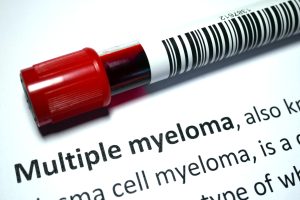
24 RCCA Physicians Named to 2025 Castle Connolly ‘Top Doctors’ List for Exceptional Cancer Care
A cancer diagnosis can be frightening. An individual may worry about how, or if, they will get better. The future becomes unclear and the strain
HIPAA Alert: Potential Data Breach Learn More
Questions on Oncology, Hematology and/or Infusion Clinical Services due to COVID-19 Crisis – CALL 833-698-1623
Important Information for Our Patients Regarding the Coronavirus.
RCCA Providing Area Cancer Patients with Access to Care During Coronavirus Outbreak
RCCA Offering Patients Virtual Visits During Coronavirus Pandemic
Colorectal cancer is increasing among younger adults. At Regional Cancer Care Associates (RCCA), we understand that facing cancer can be overwhelming. That’s why our dedicated team is here to guide you every step of the way with personalized care, cutting-edge treatments, clinical trials, and advanced diagnostics — each tailored to your individual needs. Patients can find compassionate assistance in New Jersey, Connecticut, Maryland, Massachusetts, and the Washington, D.C., area at RCCA’s numerous locations.
Colorectal cancer is now the third most commonly diagnosed cancer in the United States, with a steadily rising incidence among adults under 55. While overall rates have declined for those over 65 since the early 2000s, cases among people 54 and younger have increased by about 2% each year since 2011—making up 30% of new colorectal cancer diagnoses.

Though experts have not yet identified a specific cause for this early-onset trend, younger adults often face later-stage diagnoses because they fall outside standard screening guidelines. In 2021, the recommended screening age was lowered to 45, but recognizing potential colorectal cancer risk factors and the early signs or symptoms remains critical for those under that age. Timely detection paves the way for more effective treatment, reinforcing the importance of adhering to screening recommendations and staying aware of personal risk factors.
One of the strongest risk factors in developing colorectal cancer is a family history of the disease. People who have a first-degree relative (parent, sibling, or child) who has been diagnosed with the disease are 2 to 4 times more likely to develop the disease as compared to people with no family history of colorectal cancer. The risk increases with a family history of diagnosis before the age of 50 and when multiple relatives have been diagnosed.
Some inherited genetic conditions also may increase your risk of developing colorectal cancer. Conditions like Lynch Syndrome and familial adenomatous polyposis are linked to an estimated 10 to 20 percent of early-onset colorectal cancers. For example, in patients with Lynch Syndrome, the lifetime risk of developing colorectal cancer is 40 to 70 percent, and diagnosis often occurs at a younger age, with a median age at diagnosis of 40.
Having a family history of cancer or an inherited genetic condition linked to cancer doesn’t guarantee you will develop colorectal cancer at a young age, or even in your lifetime. However, this information can help you and your healthcare provider take proactive steps to manage your health, including early screening.
Several health conditions may increase the risk of developing colorectal cancer. Experts estimate that half of younger adults diagnosed with colorectal cancer also have a chronic condition that causes inflammation in the gut. This can include irritable bowel syndrome, Crohn’s disease, ulcerative colitis, and diabetes. A history of adenomatous polyps or a personal history of other cancers also may increase the risk of colorectal cancer. Younger adults with these conditions should speak to their provider about their cancer risk.
The American Cancer Society estimates that more than half of colorectal cancers are linked to modifiable risk factors. Incorporating healthy habits and lifestyle choices may reduce your colorectal cancer risk. Diet, weight, and a sedentary lifestyle may be linked to early-onset colorectal cancer.
Diet
Diets that are heavy on red meat like beef, pork, or lamb and processed meat like hotdogs and sausages have been linked to an increased risk of colorectal cancer. However, diets that are high in vegetables, fruits, and whole grains may lower your risk of developing colorectal cancers. A higher body weight may also have a higher risk level. Eating well and maintaining a healthy weight can help improve your health while lowering your cancer risk. Speak to your doctor about any concerns you may have about your diet or weight so they can help you develop a healthy diet.
Physical Activity
Regular physical activity can lower your risk of developing colorectal cancer. For most adults, 150 to 300 minutes of moderate activity or 75 to 150 minutes of vigorous activity is recommended. Moderate activity raises your heart rate and can include walking, biking, or even some housework. Vigorous activity uses large muscle groups and your heart and can make you sweat. This can include jogging, aerobic exercise, or swimming. You may also want to limit sitting and lying down.
Because many early-onset colorectal cancers develop before the recommended screening age, it’s important for young adults to know the signs and symptoms of colorectal cancer. Knowing what to look for can help catch colorectal cancers at an early stage when they are most treatable. Signs and symptoms of colorectal cancer may include:
A change in bowel habits, including diarrhea or constipation that lasts for more than a few days
While these symptoms do not always indicate cancer, you should speak with your physician if your symptoms last for weeks, become more severe, or you experience any changes you are concerned about. Your doctor can determine whether you should have a colonoscopy or any other tests to determine the cause of the problem. Speak with your healthcare team about any symptoms you experience, including new symptoms and any change in symptoms.
If you have questions about your risk level for developing colorectal cancer at a young age, talk to your healthcare provider. They can help you determine whether you need to begin early screening and help you determine any other precautions you may need to take to manage your health.
If you’d like more information about colorectal cancer, or if you’re ready to discuss your treatment options, contact us today. We’re here to help you navigate every step of your journey.
Our specialists work collaboratively to create a customized plan that considers both immediate and long-term well-being. With more than 20 locations in New Jersey, Connecticut, Massachusetts, Maryland, and the Washington, D.C., area, Regional Cancer Care Associates ensures high-quality care is close to home.
For more information or to schedule an appointment,
call 844-346-7222. You can also schedule an appointment by calling the RCCA location nearest you.

A cancer diagnosis can be frightening. An individual may worry about how, or if, they will get better. The future becomes unclear and the strain

Multiple myeloma (MM) is a rare type of blood cancer that often develops without early symptoms, making awareness of risk factors essential. Regional Cancer Care

A cancer diagnosis can bring a wide range of emotions, from fear and stress to sadness and hope. These feelings are a natural part of

Regional Cancer Care Associates is one of fewer than 200 medical practices in the country selected to participate in the Oncology Care Model (OCM); a recent Medicare initiative aimed at improving care coordination and access to and quality of care for Medicare beneficiaries undergoing chemotherapy treatment.